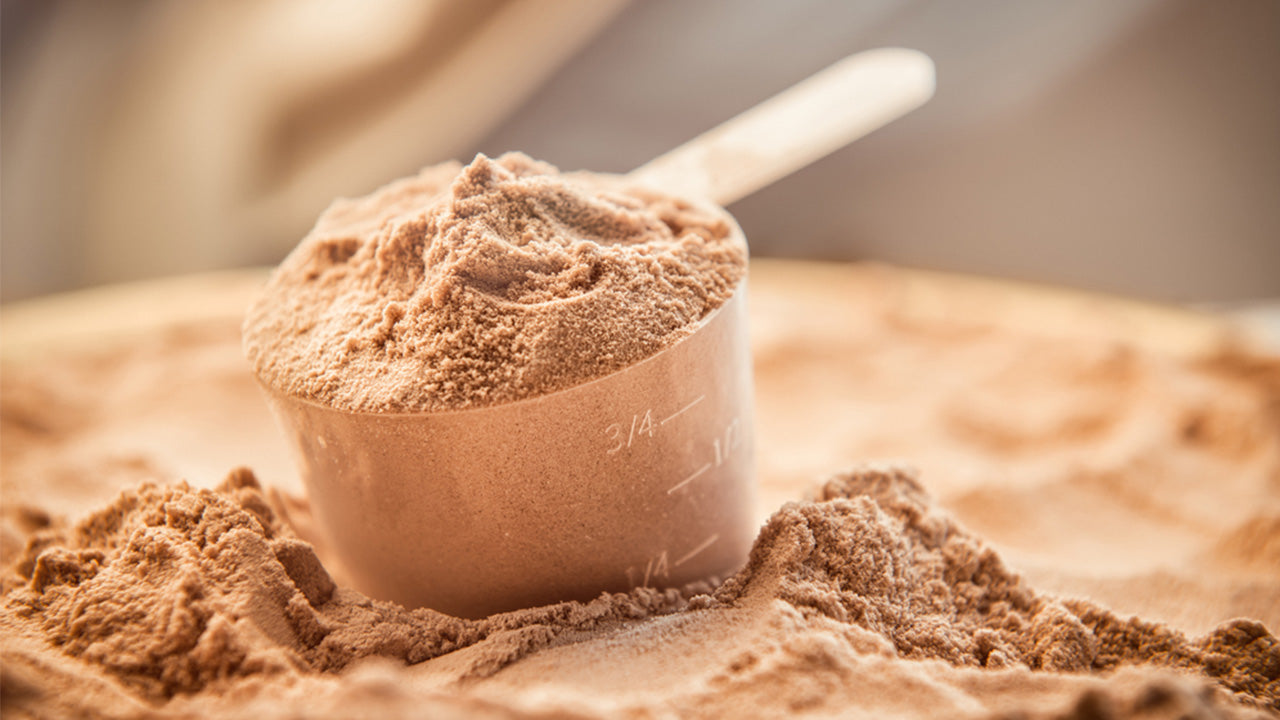Essential Amino Acid Supplements and Bariatric Surgery
 By: by Dr Robert Wolfe
By: by Dr Robert Wolfe

According to figures from the American Society for Metabolic and Bariatric Surgery (ASMBS), the number of Americans choosing to undergo bariatric surgery has risen steadily over the past several years, with over 200,000 undergoing the procedure in 2017 alone.
However, while the obesity epidemic leads more and more people to consider a surgical solution to excess weight, many may not realize that the physical changes to the digestive tract caused by bariatric surgery also result in changes to the body’s ability to absorb nutrition.
In this article, we’re going to take a look at the different types of bariatric surgery available, the benefits and risks of these procedures, and how amino acids can help you maintain the nutrition so important to your health both during recovery and long after the procedure is over.
Types of Bariatric Surgery
Bariatric surgery is performed on severely obese individuals who have not been able to lose weight with diet and exercise alone.
Generally, the procedure is not recommended unless you have extreme obesity, characterized by a body mass index (BMI) of 40 or greater, or a BMI of 35 and at least one obesity-related health problem, such as type 2 diabetes, high blood pressure, sleep apnea, or heart disease.
The surgery works by changing the shape of or removing portions of the stomach and (sometimes) small intestine. In the United States, three types of bariatric surgery procedures are most commonly performed:
- Gastric bypass
- Gastric banding
- Gastric sleeve
Each type of surgery also has its advantages and disadvantages.
1. Roux-en-Y Gastric Bypass
The Roux-en-Y gastric bypass works by dividing both the top of the stomach from the bottom and the first part of the small intestine. The bottom end of the small intestine is then attached to the newly created pouch at the top of the stomach.
This procedure reduces both the amount of food the stomach pouch can hold at any one time and the small intestine’s ability to absorb calories and nutrients. This type of gastric bypass surgery is also typically not reversible.
2. Biliopancreatic Diversion with Duodenal Switch
In this second, more complicated form of gastric bypass, approximately 80% of the stomach is removed. The majority of the small intestine is then bypassed by connecting the end portion of the intestine to the duodenum.
Like the Roux-en-Y gastric bypass, this procedure works to reduce both stomach capacity and calorie and nutrient absorption. However, because it also carries with it more risks, the biliopancreatic diversion with duodenal switch is generally limited to people with a BMI greater than 50.
3. Laparoscopic Adjustable Gastric Banding
Gastric banding is a laparoscopic surgery in which an inflatable band, commonly known as a lap band, is placed around the upper portion of the stomach. When the band is inflated, it creates a small pouch that restricts the amount of food the upper portion of the stomach can hold.
4. Sleeve Gastrectomy
Gastric sleeve surgery actually makes use of the first part of the biliopancreatic diversion with duodenal switch, drastically reducing the size of the stomach until it’s shaped like a tube.
Benefits of Bariatric Surgery
Bariatric surgery can help patients avoid serious health problems by improving many of the health risks associated with severe obesity. These include:
In addition, the weight loss that results from bariatric surgery may improve mobility and reduce symptoms of arthritis, thereby increasing the ability to engage in physical activity.
Side Effects of Bariatric Surgery
Bariatric surgery also comes with both short-term and long-term risks. These include:
- Infection
- Acid reflux
- Bowel obstruction
- Dumping syndrome
- Low blood sugar
- Malnutrition
- Diarrhea
- Hernias
The Longitudinal Assessment of Bariatric Surgery (LABS) program of the National Institutes of Health (NIH) recruits bariatric surgery patients in order to track both short-term and long-term outcomes of surgery.
LABS has found that approximately 4% of individuals have at least one major adverse outcome within a month of surgery. The program has also shown no difference in adverse outcomes with different bariatric procedures.
Bariatric Surgery and Body Composition Changes
Bariatric surgery causes weight loss in most individuals, and the greatest percentage of that weight loss is a reduction in fat mass. However, it’s been demonstrated that lean body mass is reduced by approximately 20% as well.
This is an unfortunate finding, as lean muscle lays the foundation for successful weight loss and maintenance as well as optimal health.
However, the good news is that the addition of an amino acid supplement to the diet following bariatric surgery can minimize the loss of lean body mass.
Essential Amino Acid (EAA) Supplements and Weight Loss Following Bariatric Surgery
Weight loss following bariatric surgery is fundamentally governed by the same principles that govern any other weight-loss program—that is, weight is lost due to a negative energy balance.
In other words, the amount of energy you consume throughout the day must be less than the amount of energy you expend. And since calories are the unit of energy we’re talking about here, a negative energy balance simply refers to a caloric expenditure that's greater than caloric intake.
However, losing weight isn’t as simple as dropping pounds. If it were, it wouldn’t matter whether those pounds were in fat or muscle.
But you want to lose fat and preserve muscle, so weight loss must be focused on losing just the fat. After all, that’s the definition of successful weight loss.
Unfortunately, when you reduce the number of calories you eat, you potentially negatively affect muscle mass in two ways.
Protein Intake
If you don’t change the composition of your diet, your protein intake is going to be cut in half along with your caloric intake. To avoid this, you need to keep your protein intake high so you can preserve lean muscle mass during weight loss.
But to do this, you have to double the percentage of calories you’re taking in as protein just to maintain the same amount of protein you normally eat.
For example, if you consume 25% of your calories as protein, to keep protein levels constant during weight loss, 50% of the calories you eat need to be protein.
And given that most forms of protein provide at least half their calories as carbohydrates and/or fats, that means your entire diet may have to be composed of foods from the protein food group.
Muscle Protein Synthesis
In addition to the negative effects on protein intake, a negative energy balance also makes it much harder to maintain the same rate of muscle protein synthesis when calories are cut.
In the human body, protein is constantly being built up and broken down. And we’ve known for more than a hundred years that the amount of protein needed to maintain this balance between protein synthesis and protein breakdown is influenced by energy intake (in the form of nutrition), which fuels the energy cost of protein synthesis.
However, when you reduce the number of calories you eat, muscle protein is inevitably lost. And this is the fundamental challenge of maintaining muscle mass when you’re losing weight.
How does all this play out in light of the negative energy balance created by bariatric surgery?
Muscle can only be preserved following bariatric surgery if enough essential amino acids (EAAs) are available to stimulate muscle protein synthesis to a degree sufficient to maintain muscle mass. And the most effective and practical way to accomplish this goal is by increasing dietary EAA intake.

The loss of lean body mass—and muscle mass, in particular—is dramatic following bariatric surgery.
This undesirable effect reflects, in part, an impaired ability to digest intact protein (the “whole” form of protein we ingest via food sources, made up of strings of individual amino acids connected to one another, as opposed to the separated amino acids found in free-form amino acid supplements) effectively, especially in the first few weeks after surgery.
In addition, patients who go through any surgical procedure may develop anabolic resistance. When this happens, intact protein loses its normal effectiveness in stimulating muscle protein synthesis.
Unlike intact proteins, such as meat and eggs, free EAAs are extensively digested and absorbed even after bariatric surgery, so their effect on muscle protein turnover is fully retained.
The fact that free-form EAAs can be formulated to overcome anabolic resistance is another potential advantage of relying on EAA-based nutrition following bariatric surgery.
How Many EAAs Are Needed to Maintain Muscle Mass After Bariatric Surgery?
You need to consume at least 1.2 grams of protein per kilogram of body weight each day to maintain muscle mass during weight loss. So, if you weigh 350 pounds, you need to eat 190 grams of protein, or about 400 grams of protein food sources such as meat, fish, and dairy products.
That’s about 2,000 kilocalories just from protein food sources alone!
Add to this the fact that the normal total caloric intake during weight loss following bariatric surgery is about 1,200 kilocalories per day, and it’s clear the numbers don’t add up.
You just can’t get enough protein from food sources to maintain lean mass.
This is particularly relevant when we’re talking about weight-loss surgery, as the amount—and sometimes type—of food bariatric surgery patients are able to eat after the procedure is limited.
Thankfully, this disadvantage can be remedied by supplementing with a free-form EAA formula. Not only have EAAs been proven to help you lose the fat, but they can also ensure you retain that all-important muscle.
Let me explain how this works.
Based on our earlier example—and given the normal proportion of EAAs in high-quality dietary proteins—a protein intake of 190 grams per day would translate to about 80 grams of EAAs.
However, in the early stages after surgery, it may not be feasible to eat more than 50 grams of protein per day, or about 20 grams of EAAs.
In this scenario, your diet would be 60 grams short of enough EAAs to maintain lean body mass, so to make up the difference, you’d need to consume 60 grams of EAAs in the form of a dietary supplement.
And this is as simple as taking a 15-gram dose of EAAs 5 times a day. In fact, a recently published study showed that 5 × 15 grams of EAAs was sufficient to maintain lean body mass during weight loss.
As your ability to obtain protein from food sources increases with time, the amount of supplemental EAAs required to maintain muscle mass will decline, but an intake of at least 30 grams of EAAs will ensure continued maintenance of muscle mass.
If you think you or a loved one may be a candidate for weight-loss surgery and would like more information on the different procedures available and what to expect before, during, and after surgery, I encourage you to visit the ASMBS website.
And if you’re already preparing to undergo bariatric surgery, I recommend supplementing with this Surgical Recovery Blend to support your nutritional intake during recovery and beyond.

Up to 25% off Amino
Shop NowTAGS: surgery
Join the Community
Comments (0)
Most Craveable Recipes




 833-264-6620
833-264-6620



















